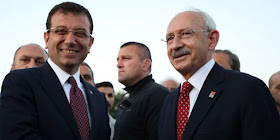Okyanusya kıtasının en önemli ülkesi ve en büyük ekonomisi olan Avustralya’da, 47. parlamentonun üyelerini ve yeni hükümeti belirlemek için 21 Mayıs 2022 tarihinde sandık başına gidildi. 2018 yılından beri ülkesinde Başbakan olarak görev yapan Avustralya Liberal Partisi lideri Scott Morrison, Liberal-Ulusal koalisyonun (Avustralya Liberal Partisi ile Avustralya Ulusal Partisi arasındaki seçim ittifakı) Başbakan adayı olarak girdiği seçimde, Avustralya İşçi Partisi ve 2019'dan bu yana partinin yeni lideri olan Anthony Albanese'e geçildi ve iktidarını kaybetti. Dolayısıyla, Avustralya'da yıllar sonra yeniden sol iktidara geldi. Bu yazıda, 2022 Avustralya federal seçimlerini inceleyeceğim.
Anthony Albanese
Hatırlanacağı üzere, 2019 yılında yapılan bir önceki Avustralya federal seçimlerinde, Scott Morrison liderliğindeki Liberal-Ulusal koalisyon, Bill Shorten liderliğindeki Avustralya İşçi Partisi'ni mağlup ederek 3 yıl daha iktidarda kalmaya hak kazanmıştı. Scott Morrison liderliğindeki Avustralya, Amerika Birleşik Devletleri (ABD) ile geliştirdiği yakın ilişkiler neticesinde, önce Fransa ile yapmış olduğu tarihi denizaltı anlaşmasını feshederek Paris ile bir gerginlik yaşadı, daha sonra da 2021 yılında ABD ve Birleşik Krallık ile birlikte Çin karşıtı AUKUS adlı yeni bir güvenlik paktına dahil olarak, yeni nükleer enerjiyle çalışan denizaltılarını ABD ve Birleşik Krallık gibi geleneksel müttefiklerinden almaya karar verdi. Zaten ABD, Hindistan ve Japonya ile birlikte Dörtlü Güvenlik Diyaloğu - QUAD'a da dahil olan Avustralya, bu şekilde son yıllarda çok yakın ekonomik ilişkiler kurduğu Pekin yönetiminden uzaklaşma yolunda güçlü sinyaller vermeye başladı.
2022 Avustralya federal seçimleri sonuçları
2022 federal seçimleri sonucunda, Avustralya İşçi Partisi yüzde 51,7 oyla parlamentoda 76 sandalye elde ederken, Liberal-Ulusal koalisyon yüzde 48,3 oy ve 57 sandalyede kaldı. Diğer 16 parlamento sandalyesi ise bağımsızlar ve diğer partilerden adaylara gitti. Bu şekilde, sol parti, iktidar için gerekli olan kritik 76 sayısına ulaşmayı başardı ve 9 yıllık Liberal-Ulusal koalisyon döneminin ardından Avustralya'da yeni bir dönem başlamış oldu. Avustralya İşçi Partisi lideri ve yeni Başbakan Anthony Albanese ise, seçim sonuçlarının belli olmasının ardından yaptığı ilk açıklamada, "Mesajım, tüm Avustralyalıları temsil etmek istiyorum. Ülkeyi birleştirmek istiyorum. Son zamanlarda çok fazla bölünme oldu. Mevcut hükümete yönelik eleştirilerimden biri de Scott Morrison'ın birlik ve ortak amaçtan ziyade farklılık ve bölünme arayışında olması. İnsanları bir araya getirmek istiyorum ve büyük demokrasimizde insanlar nasıl oy verirse versin, insanların görüşlerini sandıkta ifade etmeleri güzel. Bunu yaptıktan sonra birlik olup millet olarak ilerlememiz gerekiyor. Yapabileceğimize inanıyorum." ifadelerini kullandı.
Penny Wong
Geçtiğimiz hafta yemin ederek ülke tarihinin 31. Başbakanı olarak görevine başlayan Albanese'in yanı sıra, düzenlenen resmi törende, Richard Marles Başbakan Yardımcısı, Penny Wong Dışişleri Bakanı, Katy Gallagher ile Jim Chalmers da Ekonomi Bakanı olarak yemin ettiler. 1968 Malezya doğumlu Penny Wong, ülke tarihinin ilk yurtdışı doğumlu Dışişleri Bakanı olarak tarihe geçerken, ücretsiz sağlık sistemini savunan sol politikaları ve rugby tutkusuyla bilinen Başbakan Albanese de, uzun yıllardır devam eden siyasi kariyerinin sonucunda Başbakanlık koltuğuna ulaşmayı başardı. Daha önce 2007-2013 döneminde Kevin Rudd liderliğindeki Avustralya İşçi Partisi iktidarında Ulaştırma ve Altyapı Bakanlığı ve yine 2013 yılı içerisinde birkaç ay Başbakan Yardımcılığı görevlerini yapan Albanese, ABD-Çin rekabetinin giderek arttığı ve en yoğun hissedildiği ülke olan Avustralya'da bundan sonra dümendeki yeni kaptan olacak. Albanese, sol görüşlü olmasına karşın, demokrasiye olan bağlılığı nedeniyle, Çin'in Pasifik bölgesinde artan etkinliğine karşı politikaları sürdürecek gibi gözüküyor. Ancak Avustralya'nın en büyük dış ticaret partneri olan Çin'le ilişkilerinin siyaseten gerilmesi, ülkenin ekonomik gidişatını olumsuz etkileyebilecek bir faktör olarak bazı sektör liderlerini (üniversiteler başta olmak üzere) endişelendiriyor.
Sonuç olarak, Türkiye'den uzak ve gönülden ırak olan Avustralya'da yaşananlar ve yaşanacakların 21. yüzyıl siyasetinde belirleyici unsurlardan biri olabileceğini akılda tutmak ve bu ülke siyasetini yakından gözlemlemek gerekiyor.
Doç. Dr. Ozan ÖRMECİ










